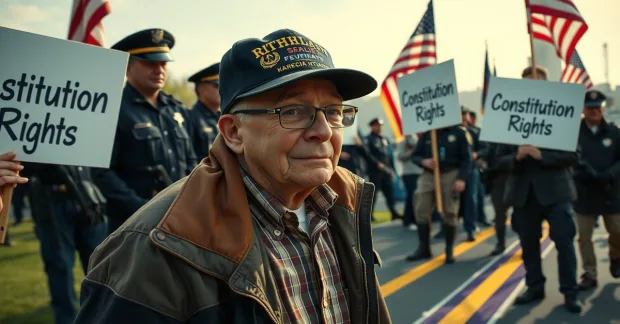
Suing the planet? Climate change lawsuits have been on the rise in recent years, as individuals, communities, and even governments seek justice and accountability for the devastating effects of global warming. From extreme weather events to rising sea levels, the impact of climate change is undeniable, and many are turning to the legal system in an attempt to hold those responsible accountable.
Key Takeaways:
- Rising Trend: Climate change lawsuits are on the rise globally as citizens, advocacy groups, and governments seek legal avenues to hold corporations and governments accountable for their role in climate change.
- Varied Approaches: Lawsuits related to climate change take various approaches such as challenging government policies, holding companies accountable for their carbon emissions, seeking compensation for climate-related damages, and pushing for stronger environmental regulations.
- Potential Impact: These lawsuits have the potential to drive significant changes in policies, regulations, and corporate behaviors, leading to a more sustainable and climate-friendly future.
- Limits of Legal System: While lawsuits can be powerful tools for climate action, they also have limitations in addressing the systemic and global nature of climate change, requiring comprehensive strategies beyond legal battles.
- International Scope: Climate change lawsuits are increasingly being filed across borders, reflecting the interconnected nature of climate impacts and the need for coordinated global action to combat the crisis.
- Precedent Setting: Landmark climate change lawsuits can set important precedents for future cases, shaping the legal landscape and influencing how governments, corporations, and individuals are held accountable for their contributions to climate change.
- Intersection of Law and Activism: Climate change lawsuits highlight the intersection of law and activism, showing how legal action can be a powerful tool for advancing climate justice and driving societal transformation towards sustainability.

Legal Framework for Climate Change Litigation
You may be wondering about the legal framework that supports climate change litigation. From international agreements to national laws, there are various legal avenues that individuals and organizations are utilizing to hold governments and corporations accountable for their contributions to climate change.
International Law and Treaties
One necessary aspect of the legal framework for climate change litigation is international law and treaties. The United Nations Framework Convention on Climate Change (UNFCCC) sets the overall framework for intergovernmental efforts to tackle the challenge posed by climate change. The Paris Agreement, which builds upon the UNFCCC, has reinforced the global commitment to limit global warming. These international agreements provide a basis for countries to work together to address climate change and hold each other accountable.
National Legislation and Its Impact
Litigation under national legislation has become a significant tool in pushing for climate action. Countries like the Netherlands and the United States have seen groundbreaking cases where courts have ruled in favor of climate action. For instance, in the Netherlands, the Urgenda Foundation successfully sued the government for not taking enough action to combat climate change, leading to a court order requiring the Dutch government to significantly cut greenhouse gas emissions by 2020. This case demonstrated the power of litigation in driving government action on climate change.
Plaintiffs in Climate Litigation
Governments and Municipalities
The proliferation of climate change lawsuits has seen governments and municipalities around the world stepping up as plaintiffs in an effort to hold industries accountable for their role in climate change. These entities are filing lawsuits against fossil fuel companies and other polluters for their contribution to greenhouse gas emissions and the resulting impacts on the environment and communities.
Individuals and Non-Governmental Organizations (NGOs)
Individuals and non-governmental organizations (NGOs) are also taking legal action to address climate change. These plaintiffs, often supported by environmental advocacy groups, are seeking justice for the harm caused by climate change and aiming to compel action from governments and corporations to reduce emissions and mitigate the effects of global warming.
NGOs play a pivotal role in providing resources and expertise to individuals who might not otherwise have the means to pursue legal action. They help amplify the voices of those impacted by climate change and advocate for policies that prioritize the planet’s well-being over profit.
Defendants in Climate Litigation
Now, as climate change lawsuits gain momentum worldwide, the entities being brought to court are diverse and varied. From fossil fuel giants to governments and public institutions, the defendant list in climate litigation is expanding rapidly.
Fossil Fuel Companies and Industrial Polluters
Defendants in climate lawsuits often include fossil fuel companies and industrial polluters. These entities are accused of being major contributors to greenhouse gas emissions that drive climate change. Plaintiffs argue that these companies have known about the potential environmental impact of their operations for decades and have failed to take sufficient action to reduce their carbon footprint. As a result, they are being held accountable for their role in exacerbating the climate crisis.
Governments and Public Institutions
Companies have also been targeted in climate litigation for their actions (or inactions) that contribute to climate change. From deforestation practices to emissions from manufacturing processes, corporations are being held responsible for their environmental impact. Some lawsuits allege that these companies have misled the public about the extent of their contributions to climate change, leading to further legal scrutiny and demands for accountability.
Industrial entities are often seen as key players in climate litigation due to their significant contribution to greenhouse gas emissions. While some have taken steps to transition to more sustainable practices, others continue to prioritize profits over environmental concerns. Holding these entities accountable through legal action is seen as a crucial step in mitigating the impacts of climate change and ensuring a sustainable future for our planet.
The Basis of Legal Claims in Climate Lawsuits
Public Nuisance and Environmental Harm
For many climate change lawsuits, the legal claims are rooted in the principles of public nuisance and environmental harm. Public nuisance typically refers to actions that interfere with the rights of the general public, while environmental harm involves damage to the natural environment. In the context of climate change, these legal theories are often used to hold entities accountable for their contributions to global warming and the associated impacts on communities and ecosystems.
Human Rights and the Duty to Protect
Lawsuits filed on the basis of human rights and the duty to protect focus on the responsibilities of governments and corporations to safeguard the well-being of individuals and communities in the face of climate change. These legal claims argue that failure to take action to reduce greenhouse gas emissions and mitigate the effects of climate change constitutes a violation of fundamental human rights, such as the right to life, health, and a safe environment.
To address these legal challenges, courts around the world are increasingly being called upon to consider the urgent need for climate action and the legal obligations of governments and corporations to protect the environment and human rights. The outcomes of these lawsuits have the potential to set a precedent for holding entities accountable for their contributions to climate change and spur more sustainable practices going forward.
Challenges in Climate Change Lawsuits
Scientific Complexity and Causation Issues
Keep in mind that one of the primary challenges facing climate change lawsuits is the scientific complexity involved in establishing causation. Proving that a specific entity is responsible for climate change impacts requires sophisticated understanding of climate science, which can be a daunting task for legal professionals. The interconnected nature of global climate systems and the cumulative nature of greenhouse gas emissions add layers of complexity to these cases.
Legal Standing and the Justiciability of Climate Issues
The issue of legal standing and the justiciability of climate change lawsuits can be a significant hurdle in seeking legal redress for climate impacts. The courts often grapple with whether these issues are suitable for judicial resolution or are more appropriately addressed through legislative and regulatory processes. Establishing standing in climate change cases often involves proving a direct and concrete injury that can be traced back to specific actions of the defendant, which can be a high bar to clear.

Legal professionals working on climate change cases must navigate through these challenges and seek innovative legal strategies to hold responsible parties accountable for their contributions to climate change. The evolving landscape of climate change litigation requires a proactive approach in addressing these legal hurdles to ensure that justice is served in the face of an increasingly urgent global crisis.
The Role of the Judiciary in Climate Change
Your substantial and initiative role of the judiciary in addressing climate change cannot be overlooked. As governments and corporations grapple with the complexities of climate action, the judiciary stands as a critical branch of governance that interprets and enforces laws relating to environmental protection and climate change.
Landmark Judgments and Their Implications
Implications of landmark climate change judgments are far-reaching. These rulings set legal precedents, holding governments and corporations accountable for their contributions to global warming. They signal a shift towards a legal landscape where environmental concerns are given serious consideration, leading to greater protection of our planet and communities.
Influence on Policy and Corporate Behavior
Landmark climate change rulings not only impact policy but also prompt corporate behavior changes. Companies are increasingly recognizing the legal risks associated with climate inaction, leading to more sustainable business practices and investments in renewable energy. The judicial decisions serve as a wake-up call, urging corporations to align their strategies with climate goals and engage in responsible environmental stewardship.
To wrap up
Upon reflecting on climate change lawsuits, it is evident that they play a crucial role in holding governments and corporations accountable for their contributions to environmental degradation. While some may argue that these lawsuits are akin to “suing the planet,” the reality is that they are necessary in advancing climate action and promoting sustainable practices. By seeking justice for the environment and future generations, these legal actions aim to create a cleaner and healthier planet for all.
As the impacts of climate change continue to escalate, the importance of climate change lawsuits cannot be understated. Through these legal battles, individuals and organizations are demanding the necessary actions to combat global warming and protect our planet. Ultimately, holding polluters accountable and pushing for stronger environmental regulations are crucial steps towards mitigating the effects of climate change and ensuring a more sustainable future for generations to come.
FAQ
Q: What are climate change lawsuits?
A: Climate change lawsuits are legal actions taken by individuals, organizations, or governments against entities that are perceived to be contributing to climate change through their actions or policies.
Q: Who can file a climate change lawsuit?
A: Anyone who has legal standing, such as individuals, environmental organizations, or government bodies, can file a climate change lawsuit.
Q: What is the goal of climate change lawsuits?
A: The primary goal of climate change lawsuits is to hold entities accountable for their role in contributing to climate change and to seek legal remedies to reduce greenhouse gas emissions.
Q: How are climate change lawsuits different from other environmental lawsuits?
A: Climate change lawsuits specifically target actions or policies that are contributing to global warming and its effects, whereas other environmental lawsuits may address a broader range of environmental issues.
Q: What are some examples of climate change lawsuits?
A: Examples of climate change lawsuits include cases against fossil fuel companies for their role in contributing to climate change, lawsuits against governments for failing to take adequate action on climate change, and legal challenges to development projects that could exacerbate global warming.
Q: Are climate change lawsuits effective in combating climate change?
A: While individual lawsuits may have limited impact, collectively, climate change lawsuits can raise awareness, shape policies, and hold polluting entities accountable, therefore playing a role in combating climate change.
Q: What is the future outlook for climate change lawsuits?
A: The number of climate change lawsuits is expected to increase as public awareness of climate change grows and the impacts become more severe. These lawsuits will likely play a significant role in shaping environmental policies and corporate behavior in the future.




















